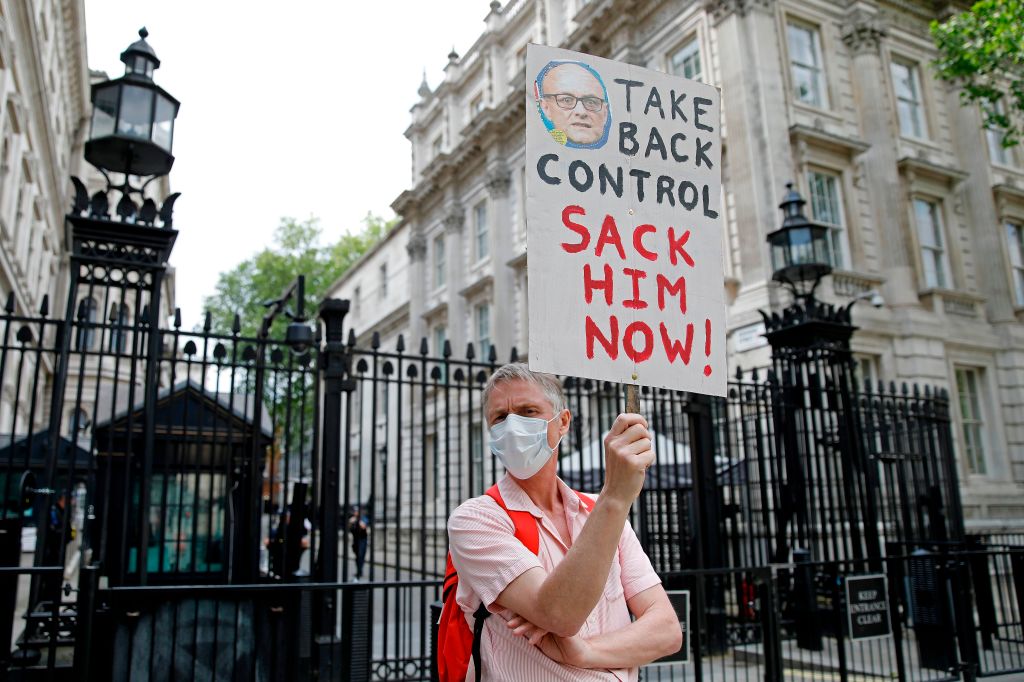The idea of short-termism being a disease that especially afflicts the British economy is a recurring theme. We are regularly told that UK investors are too often looking for a quick buck unlike in, for example, Germany where they take a longer-term strategic view. Less attention is paid to the idea that this condition has wormed its way into other parts of our national life, specifically politics. People who should know better – practitioners and commentators alike – have decided that l’affaire Cummings has changed significantly the basic political facts of life. They’re wrong, at least in the long term.
Tim Montgomerie believes this row means that Keir Starmer has the Conservatives exactly where he wants them – damned as the party of the rich and the privileged. ‘Senior backbencher’ Simon Hoare (are there any junior ones?) pronounces on the Today programme that it has led to support for the Government fading away. Sky News political editor Beth Rigby claims in her latest blog that the PM’s stature has been diminished, that he has ‘burnt through a lot of political capital’ and that he has ‘paid a very heavy price’ for keeping his chief adviser. But is this really the case? Will we remember this row in a few months’ time, let alone come the next election?
It all reminds me of the first resignation of Peter Mandelson. That, too, came relatively early in the term of an administration elected with a landslide majority. December 1998, to be precise. Mandelson, the erstwhile Svengali adviser to Tony Blair, had been launched into a ministerial career in his own right. It then emerged that he had taken a secret loan from another Labour MP and Government minister to enable him to purchase a property.
After a few frantic days attempting to save him, Blair chucked him overboard (only to bring him back some time later; wash, rinse, repeat). As a young political correspondent, I recall feeling that the affair could fundamentally change the terms of trade, shattering trust in the regime of Teflon Tony.
Alastair Campbell, then Blair’s communications director, took a different view, telling us that it was froth and that the next general election would be decided on the usual issues: the economy, the NHS, law and order, schools etc.
Let history record that Alastair was right. At the 2001 general election, with the economic wind in its sails, Labour was returned with another landslide majority. The words ‘Peter Mandelson’s secret home loan’ no doubt came up on the doorsteps approximately as often as the words ‘What about that bloke who drove to Durham that time?’ will be uttered during the 2024 election campaign, i.e. not at all.
Opinion polls do currently show an impact from all the media criticism of Cummings. The Tory lead has gone from about 20 points to about 11. No doubt there will be times in the years ahead when it further narrows or even when Keir Starmer and his 200-strong parliamentary force get their noses in front.
But to draw long-term conclusions from a short-term squall so early in a parliamentary term is a mistake. Perhaps Johnson will do other things to earn for himself an indelible reputation for unfairly favouring chums that becomes a big bone of contention with voters.
But perhaps he won’t. Perhaps Cummings will lead with his chin again at some point in the months ahead and suffer a knock-out blow as a result (much more likely according to the Mandelson precedent). In which case the lobby and his many detractors will get their pound of flesh but, again, the electoral fundamentals will not be much changed.
Looking ahead we know that other big events are on the horizon; the end of lockdown and reopening of various parts of the economy, the fourth anniversary of the Brexit referendum by when it will be clear that a transition extension really isn’t being asked for, a big strategic post-Covid Budget, a Boris and Carrie wedding, the end of transition and the emergence of the UK as a properly independent nation. These are just some of the things we know to be pencilled in.
Then there are the other, Harold Macmillan-style ‘events’ that will just crop up and about which we can have no inkling; what Donald Rumsfeld called the ‘unknown unknowns’.
The foundation of the political terms of trade will remain throughout the complexion of the House of Commons that was elected in December after the Johnson-Cummings strategy paid off in spades: 365 Conservatives and 201 Labour. That, give or take a few defections and by-elections, is the way we live now. Step back, deep breath, calm down.







Comments